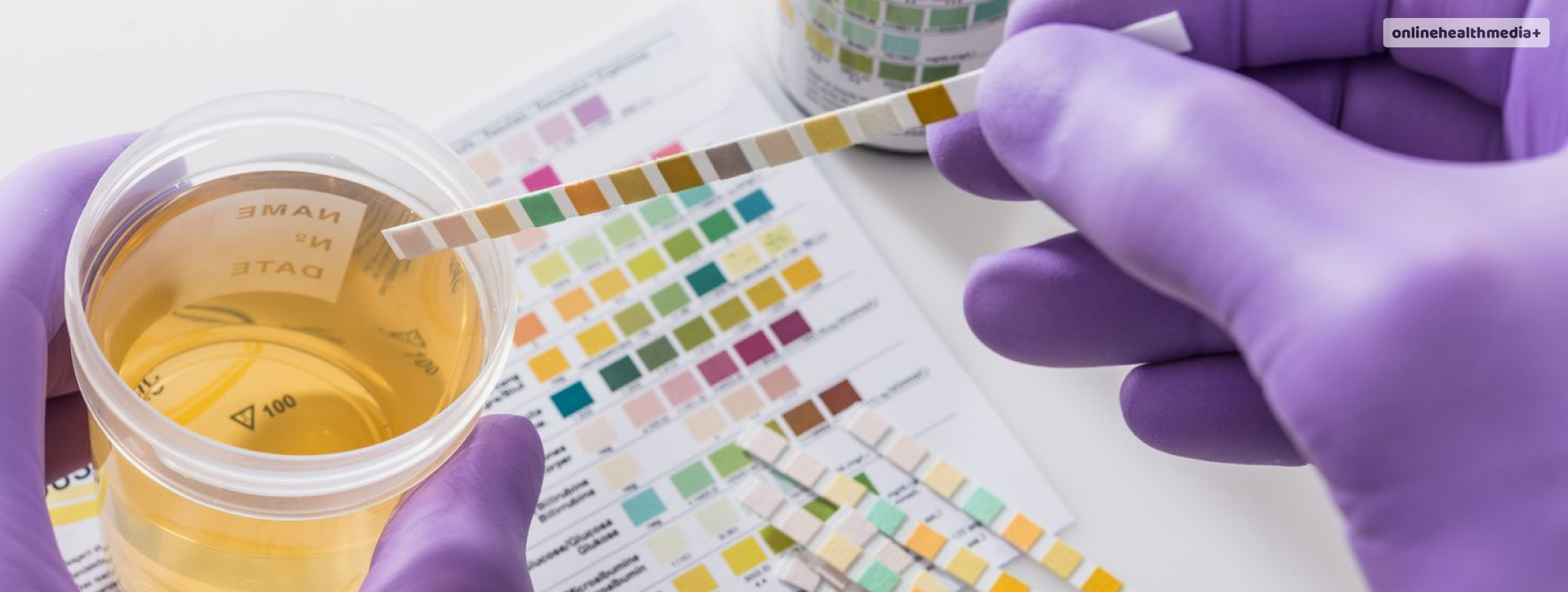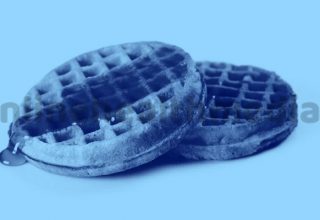Protein In Urine (Proteinuria) Causes, Tests, Symptoms And Treatments.
Important: This article is for informational purposes and is not a substitute for professional medical advice.
Protein in Urine, medically known as proteinuria, is a condition in which excess protein appears in urine. While a small amount of protein in urine is normal, excessive amounts may indicate an underlying medical issue.
This article aims to explore the causes, symptoms, and treatment options for protein in urine, shedding light on a condition that is sometimes indicative of more severe health problems.
Introduction To Protein In Urine
Protein is a vital component of our body’s cells and tissues. It plays a crucial role in various bodily functions, including maintaining fluid balance and repairing tissues.
Under normal circumstances, most proteins are too large to pass through the kidney’s filtering system.
However, when the kidneys are not functioning correctly, or other factors are at play, excess protein may end up in the urine.
One such protein that appears in the urinalysis is albumin. What is albumin? Albumin is the protein that is mainly found in the blood. However, when the kidney is damaged, there is a chance that it may appear in the urine. The ratio of urine to creatinine is measured in the test.
Urine analysis, which is a routine part of medical check-ups. In some cases, proteinuria may be a transient or benign condition, while in others, it can be a sign of more severe underlying medical conditions.
Common Causes Of Protein In Urine

Understanding the causes of proteinuria is essential to determine the most appropriate treatment. There are various factors that can lead to the presence of protein in urine:
- Kidney Disorders: Conditions like glomerulonephritis, nephrotic syndrome, or diabetic nephropathy can damage the kidney’s filtration system, allowing excess protein to pass into the urine.
- Dehydration: Dehydration can concentrate urine, leading to higher protein levels. This is usually a temporary situation and proper hydration resolves it.
- Infections: Urinary tract infections (UTIs) can lead to proteinuria due to inflammation and damage to the urinary system.
- High Blood Pressure: Hypertension can put extra stress on the kidneys, potentially leading to proteinuria.
- Diabetes: Uncontrolled diabetes can cause kidney damage, leading to the excretion of excess protein in the urine.
- Medications and Toxins: Some medications, including nonsteroidal anti-inflammatory drugs (NSAIDs) and certain antibiotics, can cause proteinuria. Exposure to toxins may also lead to elevated protein levels in the urine.
- Stress and Exercise: Intense physical activity or emotional stress can cause temporary proteinuria.
- Pregnancy: Pregnancy can lead to mild proteinuria, but it’s usually not a cause for concern.
- Aging: As people age, they may develop benign orthostatic proteinuria, which is typically harmless and often seen in adolescents.
- Excessive Protein Intake: A high-protein diet may sometimes lead to elevated protein in the urine.
Symptoms Of Protein In Urine

In many cases, proteinuria is asymptomatic, meaning it doesn’t cause noticeable symptoms. It is often through routine urine tests during medical check-ups that the condition.
However, in situations where the condition is more severe, or underlying issues are present, individuals may experience various symptoms, including:
– Swelling (edema), particularly in the face, hands, and feet.
– Foamy or frothy urine.
– Fatigue and weakness.
– Hypertension (high blood pressure).
– Changes in urine color, such as dark or brownish urine.
– Frequent urination.
– Pain or discomfort in the abdomen or lower back.
If you notice any of these symptoms, it’s crucial to consult a healthcare professional for a proper diagnosis and evaluation.
Diagnosing Proteinuria
Diagnosing proteinuria involves a series of medical assessments to determine the underlying cause, severity, and appropriate treatment. The following steps are typically part of the diagnostic process:
- Urine Test: A urine sample is analyzed for the presence of protein. If the physician detects proteinuria, further tests are often necessary.
- Blood Pressure Measurement: High blood pressure can contribute to kidney problems, so monitoring blood pressure is crucial.
- Blood Tests: Blood tests, such as serum creatinine and blood urea nitrogen (BUN), can help evaluate kidney function and identify potential causes of proteinuria.
- Urinalysis: A more detailed examination of the urine, including a microscopic analysis, can provide additional information about the type and quantity of proteins present.
- 24-Hour Urine Collection: In some cases, a 24-hour urine collection may be necessary to accurately measure protein excretion.
- Imaging: Imaging studies, like ultrasound or a CT scan, may be performed to assess kidney structure.
- Biopsy: In severe cases, a kidney biopsy may be required to determine the cause of proteinuria.
Treatment Options for Proteinuria

The treatment of proteinuria depends on its underlying cause and severity. For transient or mild proteinuria due to temporary factors like dehydration, stress, or exercise, no specific treatment may be needed.
However, when proteinuria is a result of an underlying medical condition, treatment is essential to address both the proteinuria and the root cause.
- Controlling Underlying Conditions: Managing the primary cause of proteinuria, such as diabetes or high blood pressure, is a priority. This often involves lifestyle changes and medications.
- Medications: In some cases, medications may be prescribed to reduce proteinuria. These may include angiotensin-converting enzyme (ACE) inhibitors or angiotensin II receptor blockers (ARBs).
- Dietary Changes: In cases where a high-protein diet is contributing to proteinuria, adjusting the diet to lower protein intake may be recommended.
- Lifestyle Modifications: Lifestyle changes, such as maintaining a healthy weight, staying hydrated, and avoiding excessive stress, can help manage proteinuria.
- Monitoring: Regular monitoring of blood pressure, kidney function, and proteinuria levels is essential for assessing treatment effectiveness.
- Kidney Dialysis or Transplant: In severe cases where the kidneys are significantly impaired, kidney dialysis or transplantation may be necessary.
- Preventative Measures: Pregnant individuals or those planning pregnancy should consult with healthcare professionals about preventive measures to avoid proteinuria.
Preventing Proteinuria
- Healthy Lifestyle: Maintaining a balanced diet, staying hydrated, and exercising regularly can support kidney health.
- Blood Pressure Management: For individuals with high blood pressure, managing it effectively can help prevent kidney damage and proteinuria.
- Medication Adherence: If you have a condition that requires medication, adhere to your prescribed treatment.
Complications of Proteinuria
- Kidney Damage: If left untreated, ongoing proteinuria can damage the kidneys, potentially leading to chronic kidney disease.
- Increased Cardiovascular Risk: Proteinuria is linked to an increased risk of heart disease and stroke.
- Pregnancy Complications: Proteinuria during pregnancy can indicate preeclampsia, a condition that can harm both the mother and the baby.
Conclusion
Protein in urine, or proteinuria, is a condition that can vary in severity and be caused by a range of factors. While a small amount of protein in urine is normal, excess protein may indicate an underlying medical issue, such as kidney problems, infections, or systemic diseases.
Timely diagnosis and appropriate treatment are crucial for managing proteinuria and addressing the underlying causes.
By understanding the causes, symptoms, and treatment options for proteinuria, individuals can work with healthcare professionals to ensure their kidney health and overall well-being.
It’s important to note that any concerns about proteinuria should be discussed with a qualified healthcare provider. This article is for informational purposes and is not a substitute for professional medical advice.
Also read
- Top Automated Wheelchairs Of 2023
- Different Types Of Dementia: A Comprehensive Overview.
- 10 Things You Should Know About Having Dental Retainers.



